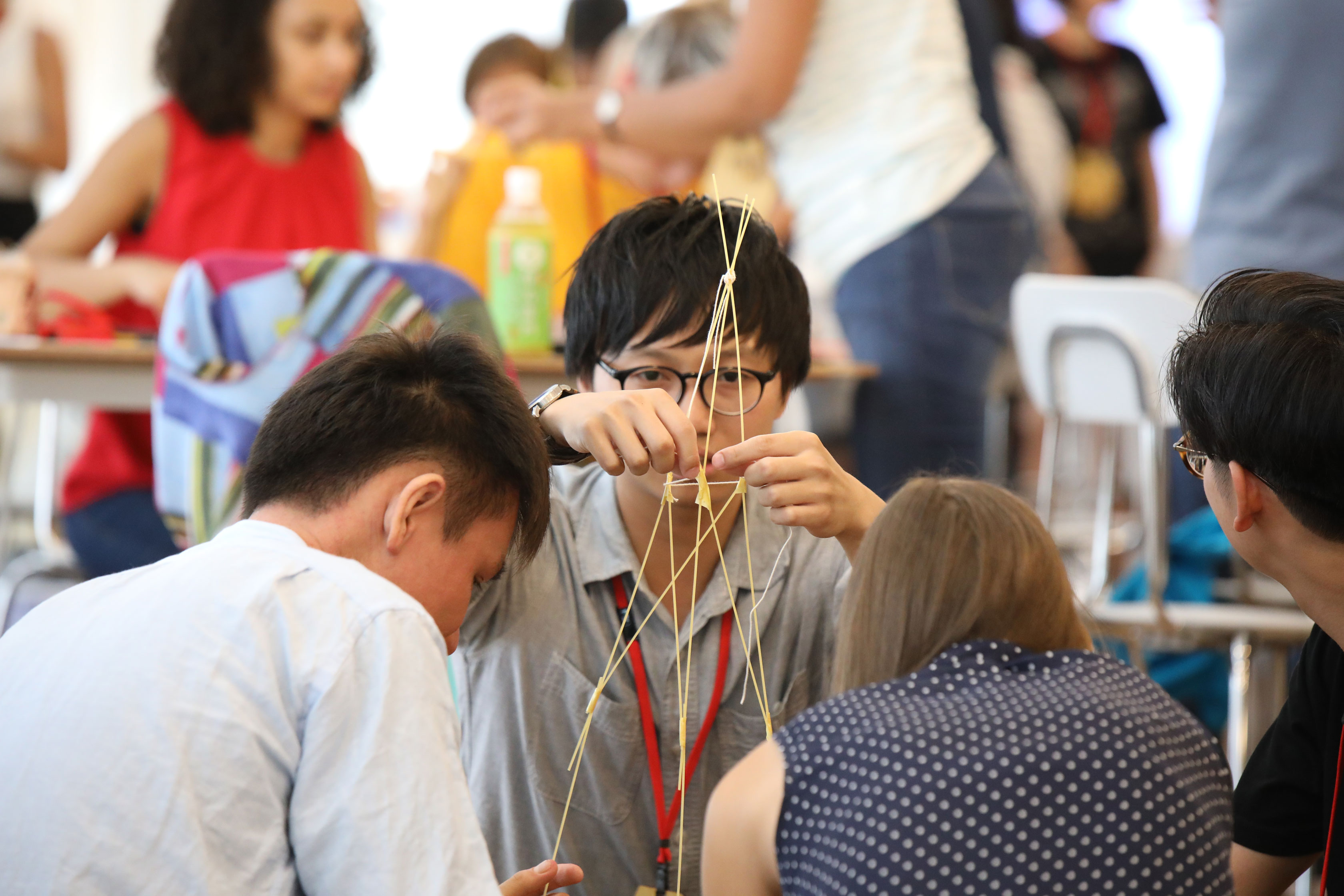KYOTO Design Lab[D-lab]が主催する Kyoto Startup Summer School[KS³]では、企業内起業家や新規事業開発に携わる企業の方々を対象に、企業参加募集枠「イノベーション・コース」の参加者を募集しています。
KS³は、D-labが世界各国のスタートアップ領域で活動する研究者や専門家、起業家らを招き、2週間にわたって実施している、日本でもっとも国際的な起業家育成セミナーです。2018年には、46カ国153人の応募者の中から、18カ国33人が参加しました。
KS³では、スタンフォード大学とシリコンバレーの実践的な研究から生まれた、商品やサービス開発の革新的な手法として知られる「デザイン手法」や、迅速なビジネスモデルの検証と発展をおこなう「リーンスタートアップ」手法を体験的に学びます。起業を目指す世界中の若者や新規事業開発を担う社会人がD-labに集まり、スタートアップに関連するさまざまな内容をすべて英語で学ぶプログラムです。
企業内起業家や新規事業開発に携わる企業の方々を対象にしたイノベーション・コースでは、新規事業開発に必要なスキル、マインドセット、革新的なプロダクトやサービス開発の方法論を学ぶことができます。また、KS3は熱心な起業家コミュニティへのつながりが世界中に生まれるということも、大きなメリットと言えます。
「新規事業開発に必要なスキル、マインドセットとは?」、「革新的なプロダクトやサービス開発の方法論とは?」などを疑問に感じている方は、ぜひKS3に参加してみてください。

Kyoto Startup Summer School 2019
イノベーション・コース
日程|2019年8月19日[月]-8月23日[金]
参加費|150,000円 [*1]
定員|先着10名(企業枠のみ)
応募|Kyoto Startup Summer School 2019 – Corporate Signup
応募資格
・新規事業開発に携わる者
・国際的なイノベーションの方法論を学びたい者
・イノベーション教育を実際に受けてみたい者
・国際的な参加者から刺激を受けたい者
[*1] 滞在費、交通費、期間中の飲食代は参加者で準備して頂く必要があります。
デザイン思考とは
デザイン思考とは、論理的に問題解決に取り組むための左脳とクリエイティブなアイデアを生み出す右脳を組み合わせたイノベーションを生み出すためのアプローチとして知られています。スタンフォード大学やデザインファームIDEOで開発され、潜在的なニーズを解決するために人間中心設計のアプローチを取り入れていることが特徴です。また、ラピッドプロトタイピングや実験的な試作を通じて、ラフなアイデアでもなるべく早く検証し、製品やコンセプトに反映する方法とも言われています。
リーンスタートアップとは
デザイン思考が洞察を得てアイデアを発展する手法なのに対して、リーンスタートアップは、そのアイデアを用いて事業化を図る手法です。科学的なアプローチによって、新たなビジネスモデルを創造し、いちはやくユーザーの元へ届けることを良しとしています。リーンスタートアップは、起業家ムーブメント発祥の地として知られるシリコンバレーで発展しました。小さなスタートアップ企業が大きくなるためには、生産-評価-反映のプロセスを回し、継続的な製品やサービスの改善を通じてユーザーを多く獲得していくことが大切です。この迅速かつ高密度なアプローチは現在、世界中の企業で採用されつつあります。
–
このプログラムに関する詳細は、京都スタートアップサマースクールのウェブサイトをご覧ください。
» Kyoto Startup Summer School (KS³) Official website
–
その他、ご質問がございましたら、D-lab事務局までご連絡ください。
一般参加者の募集についてはこちら
Kyoto Startup Summer School (KS³ for short) is a program created by the D-lab for future innovators and entrepreneurs that bring together established entrepreneurs, practitioners, venture capitalists, and academics from around the world.
KS³ is split into two weeks: innovation week and startup week. While startup week focuses on topics relevant to those intending to start companies, innovation week focuses on design thinking and lean startup. These two methodologies encompass the skills, mindsets, and processes required to create innovative products and services and develop them into businesses. This is relevant to not only entrepreneurs but also for employees interested in creating new businesses or developing innovations inside companies. Furthermore, KS³ is a great opportunity to interact with highly energetic participants from around the world.

Innovation Week:
Date: August 19th – 23rd, 2019
Application deadline: First come first served for a maximum of 10 spots
Tuition: 150,000 yen (lodging, food, and transportation not included)
Application: Kyoto Startup Summer School 2019 – Corporate Signup
Intended audience
– People working on new business creation
– People wanting to experience innovation methodologies from Silicon Valley
– People looking for innovation training
– People wanting inspiration from international students
For any inquiry, please contact lead organizer Sushi Suzuki at sushi@kit.ac.jp
What is Design Thinking
Design Thinking is an approach to innovation that was developed at Stanford University and the innovation design firm IDEO. Design thinking utilizes both sides of the brain, the rational problem-solving side as well as the imaginative creative side. At the core of design thinking is the notion of putting humans at the center and the process of finding latent needs to develop innovative solutions. Rapid prototyping and experimentation is used to quickly iterate rough ideas into refined product and/or concepts.
What is Lean Startup
If Design Thinking is about finding inspiration and developing ideas, lean startup is about taking those ideas and turning it into a successful business. Lean startup is a scientific approach to creating and managing new businesses and getting desired products to customers’ hand faster. Lean startup has been and is being continuously developed in Silicon Valley, the heart of the global startup movement. While originally intended for small startup companies, the key elements of lean startup: build-measure-learn cycle and customer development are applicable to any product and/or service development team. The quick and iterative approach is now being adopted by forward-thinking corporations around the world.
–
» Kyoto Startup Summer School (KS³) Official website
Please visit here for information on the general (non-corporate) applications.